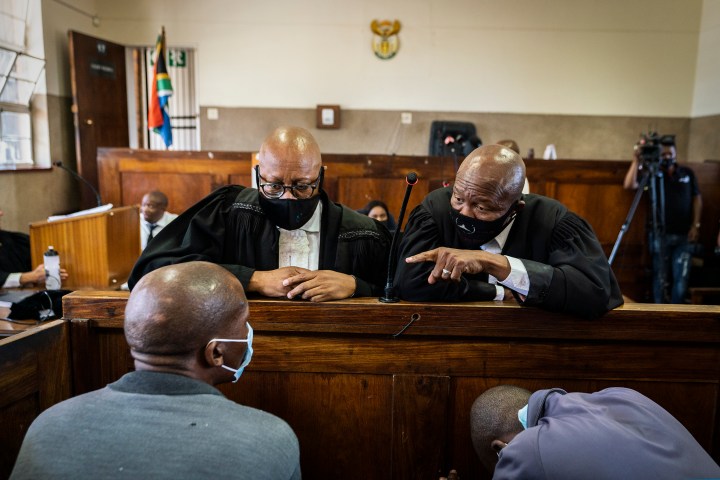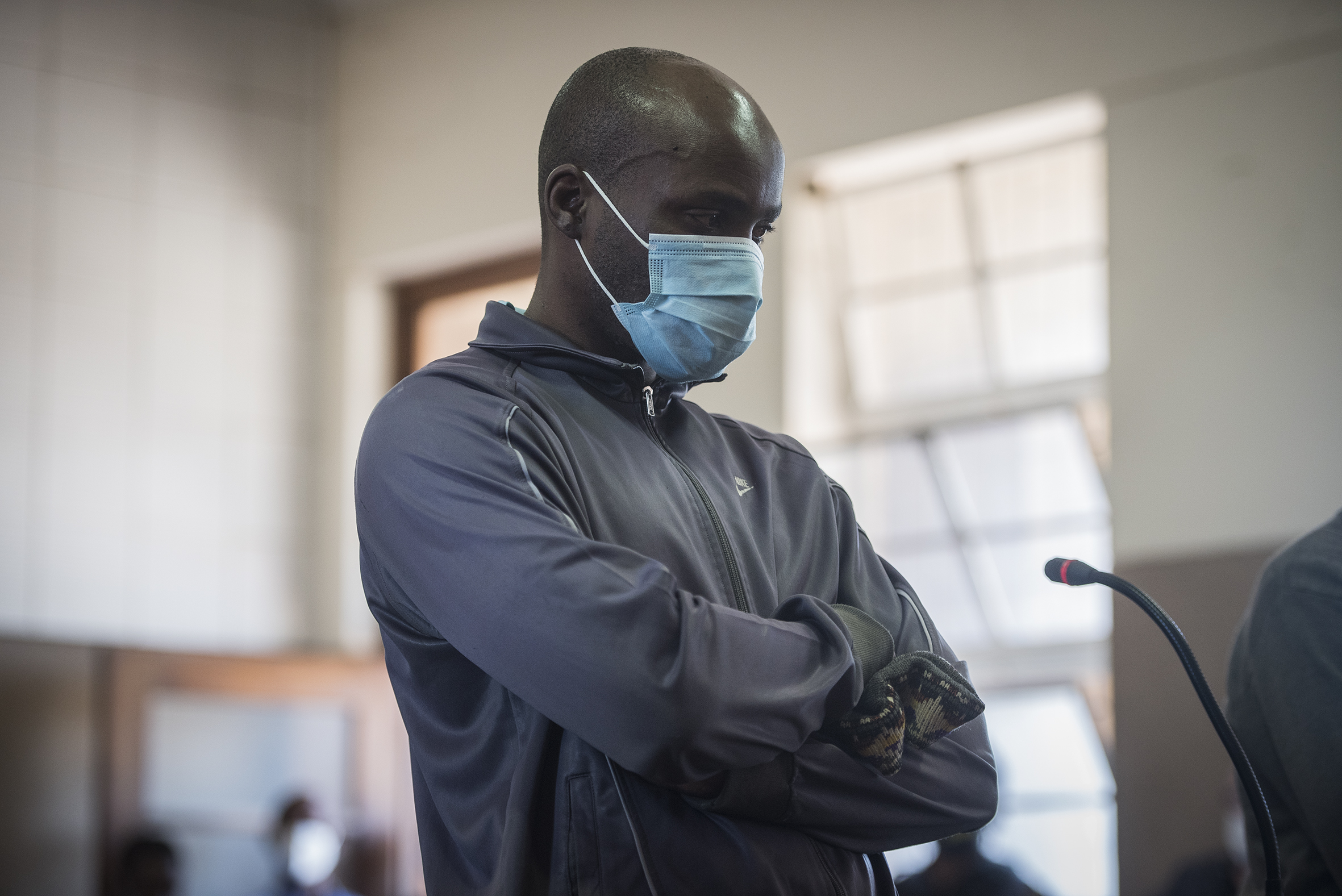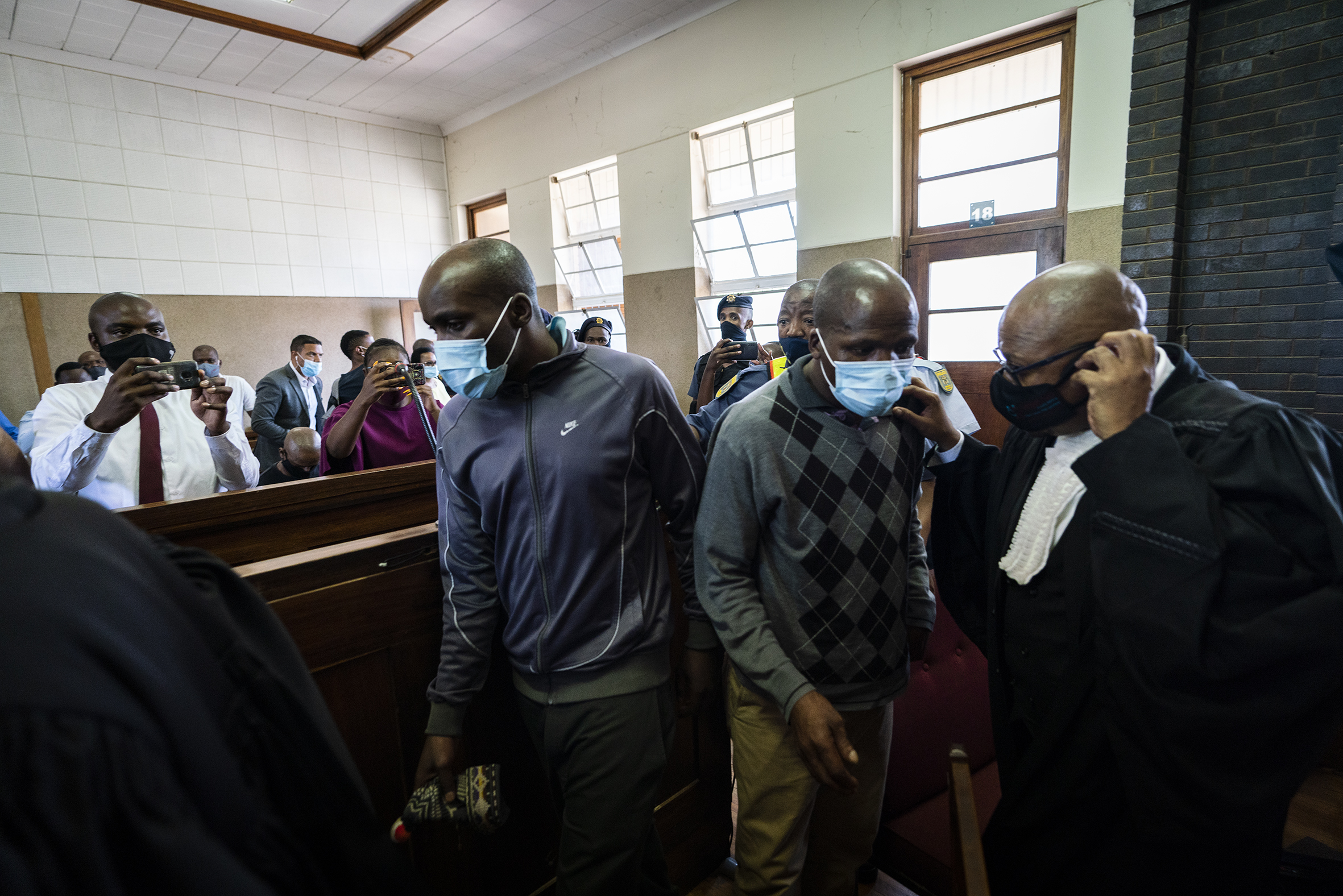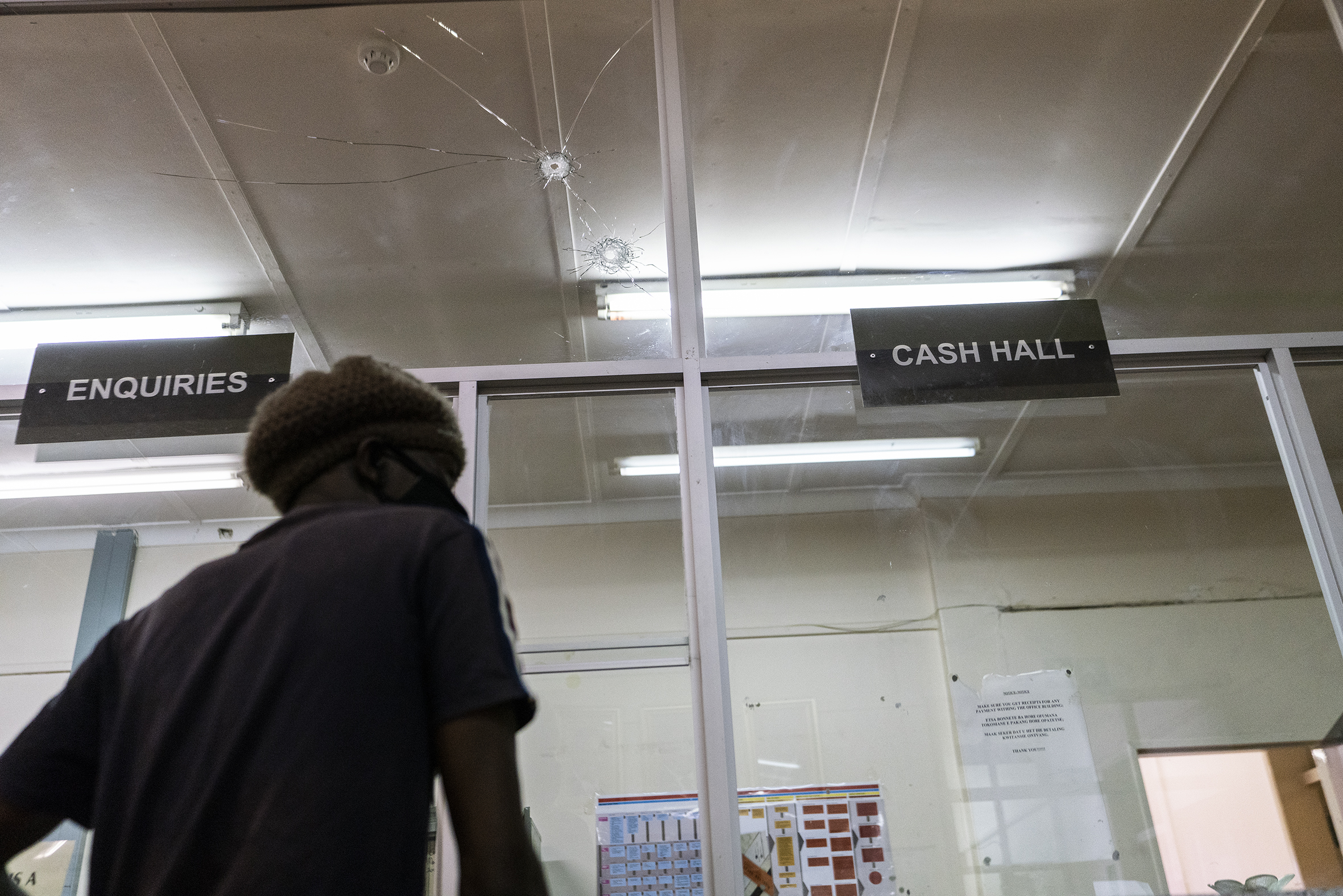SENEKAL
One of two accused in Brendin Horner killing gets bail

One of the accused in the murder of farm manager Brendin Horner has been granted bail, but his co-accused will remain in custody after his bail application was refused in the Senekal Magistrates’ Court on Thursday.
“After careful consideration of all the evidence presented before the court, the bail application of Sekwetje Mahlamba is refused and that of Sekola Matlaletsa is granted.”
These were the words of magistrate Deon van Rooyen in the Free State town of Senekal as he delivered his bail verdict in the closely-watched court action that has followed the murder of 21-year-old farm manager Brendin Horner on 2 October.
“In respect of Mahlamba, certain aspects point to his involvement in the alleged crime. There is a statement obtained from his girlfriend that he was not in the house when she woke up at 11pm, and that he returned at about 4am the following morning,” said Van Rooyen.
The magistrate said Mahlamba knew his girlfriend was a key witness and, if released, he might try to influence her testimony. He added that the matter was complicated and would take some time to conclude, pointing out that obtaining forensic results could take six months – or even a year.
Mahlamba was told he could appeal against the outcome of the bail verdict or approach another court with fresh facts.
Matlaletsa’s bail was set at R5,000, despite his legal representative earlier pleading for an amount of between R500 and R1,000.

Sekwetje Mahlamba was denied bail after argument that his relationship with his girlfriend , who is a state witness, might jeopardise the case. Photo / Shiraaz Mohamed.

Accused Sekwetje Mahlamba (L) and Sekola Matlaletsa (R) leave the court room on October 22, 2020. Photo / Shiraaz Mohamed.
Matlasesa was ordered to report at the Paul Roux police station on Mondays, Wednesdays and Fridays. He was also ordered not to communicate directly or indirectly with witnesses.
Matlalesa was warned that if he failed to comply with these conditions he would forfeit his bail and a warrant for his arrest would be issued.
The state had called for the bail application of both accused to be denied as allowing them to walk free was likely to spark civil unrest.
The duo face charges of murder and robbery with aggravating circumstances. They were arrested after Horner’s body was found tied to a fence on the farm where he worked. Injuries to the body suggested Horner had been dragged across rough ground. His bakkie was found abandoned some 13km away.
In considering whether the accused deserved bail, it was also considered that border crossing into Lesotho without proper documentation was common practise in the area. However, the magistrate said there was no credible evidence that Matlalesa would skip trial because he had a good record of attending court during previous trials.
Magistrate van Rooyen said Mahlamba had lied to the court and he found it disturbing that the brother-in-law of one of the accused had found out the identity of a state witness.
Events since the killing had exposed mistrust in the police service and exposed racial historic divisions and economic disparities.
In earlier evidence in the bail hearing, the court was told of alleged death threats to potential witnesses.
Machini Motloung, Matlaletsa’s legal representative, told the court the investigating officer Gerhardus Myburgh’s case was full of discrepancies and nothing presented to the court connected his client to the crime.
The court heard that, following Mahlamba’s arrest, police discovered blood-stained trousers in a fridge in his shack. A pair of shoes and blood-stained trousers was also found in another home in the vicinity. However, Mahlamba denied owning a pink shirt cited in evidence and disputed that bloodied trousers had been found in his shack.
The prosecution told the court the accused had been linked to the murder by statements made by two patrons of a local tavern and by an applicant’s partner and brother.
A witness at the tavern claimed one of the applicants had shown off a wallet and cellphone allegedly belonging to the deceased, while bragging of having committed a farm murder.
In stark contrast to confrontational scenes between rival groups of protesterss outside court last week Friday, the court precinct and surrounding were quiet with no sign of protester gatherings.
The matter was postponed to 1 December for further investigation. DM
COURT OF FEAR AFTER VIOLENT PROTEST

Two bullet holes in the glass (top centre left of image) at the Senekal Magistrates’ Court cash hall after a group protesting about farm murders stormed the building on 6 October, 2020. (Photo: Shiraaz Mohamed)
Senekal Magistrates’ Court interpreter Suzan Abrams has spoken of living in fear since the murder of farm manager Brendin Horner in the district — and the acrimonious political protests that have followed.
Referring to 6 October, when a large group of farmers descended on the Free State town, Abrams said: “I am in fear, the (boers) nearly killed us the first time those guys appeared for the murder case.
The farmers demanded that the arrested men be handed over to them, before at least one shot was fired and a police vehicle was rolled over and set alight, according to reports.
Investigating officer in the matter Gerhardus Myburgh told the court that a few court staffers suffered minor injuries amidst the mayhem.
Abrams told Daily Maverick: “I screamed for the office manager to close the doors but they came in like bees. The police did nothing to help. In fact, there was a white local detective that was amongst them when they stormed into the cash hall.
At some point, the staff, most of whom are women, ran into the prosecutor’s office. “I am traumatised. We did receive trauma debriefing but I still fear for my life. When this case comes up we all get scared. I go to work in another district because of the fear that I have. It feels as if I am going to an abattoir when I go to work.
“When I am at home, I am still traumatised. I cry so much as if someone beat me up. It feels as if they are still here.”
The ensuing mayhem prompted contrasting angry reactions from two groupings largely consisting of the EFF and AfriForum, whose members came out in large numbers – and opposing groupings – outside the court last Friday, when the bail hearing resumed. DM


















 Become an Insider
Become an Insider
Comments - Please login in order to comment.